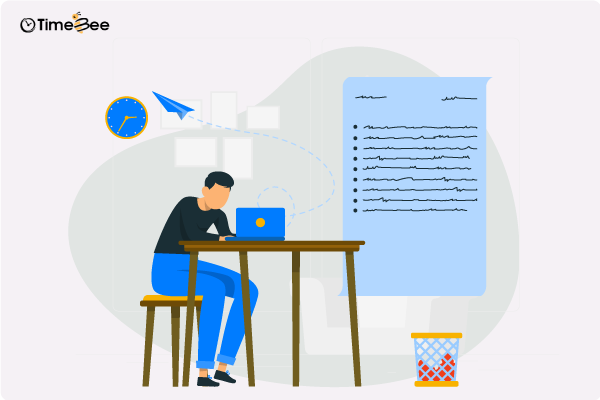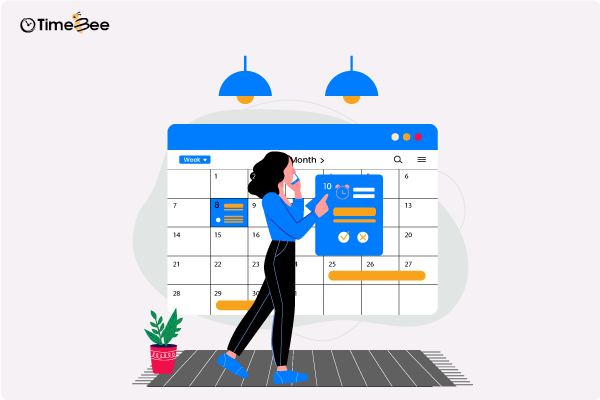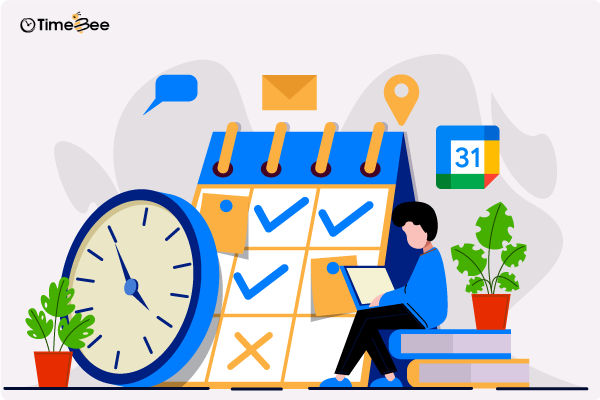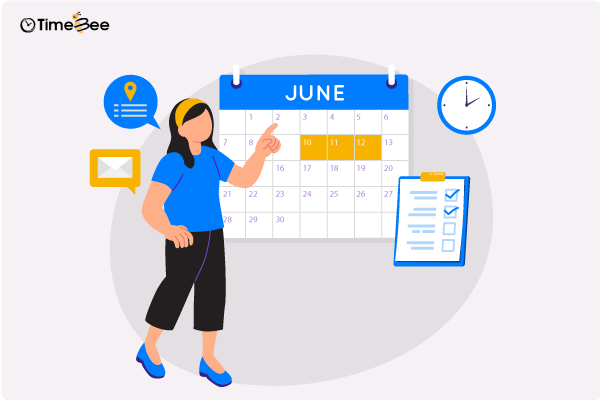Content
Content
Meetings are essential for fostering collaboration, communication, and decision-making within teams. Nonetheless, maintaining engagement and alertness during these meetings can be a real challenge.
Overcoming a meeting slump is becoming a widely searched topic on the web. It is common for workers, regardless of expertise and seniority, to lose focus during work meetings.
And who can blame them?
They can be long, tedious, and, frankly, irrelevant to every attendee. These days, the sheer volume of meetings makes it harder even to like them, let alone stay attuned.
So, how do you stay focused?
8 Tips to Stay Focused During Meetings
Since we can’t eliminate meetings, we can devise ways to improve focus and optimize your presence in work meetings.
1. Catch-up on Sleep

The significance of adequate sleep for your daily life cannot be emphasized enough. Drowsiness doesn’t only diminish your focus; it can negatively impact your overall performance. Improving your sleep could be the solution if you struggle to stay attentive during meetings.
If you have an important meeting coming up, make sure you get 7 to 8 hours of healthy sleep the night before. With a good night’s sleep, you won’t spend most of the meeting stifling yawns and filling up on coffee. Instead, you’ll be able to concentrate to the fullest.
2. Come Prepared

Preparing for an important meeting can hype you up and improve alertness. Before the meeting, thoroughly prepare by gathering as much information about it as possible. Review the agenda, gather any required materials, and establish your goals for the meeting.
Running around grabbing fresh coffee or files can appear unprofessional and even distract other attendees. Make a checklist for all the materials you need during the meetings. Also, getting tasks out of the way before stepping into important meetings can improve concentration.
3. Take Notes

An underrated hack is making notes the ‘old-school’ way. Use a pen and paper to note important points. You’ll be amazed how much you’ll retain by writing about it.
To avoid missing out on any important details, you’ll automatically become an active listener.
Listening attentively to the speaker, maintaining eye contact, and asking relevant questions can really make a difference in your alertness.
4. Eliminate Distractions

To maintain focus during meetings, it’s crucial to minimize both external and internal distractions that could disrupt the meeting’s flow. Disable notifications, put away your phone and close any unnecessary tabs or applications.
If you’re at home, choose a quiet and comfortable meeting environment, free from background noise or clutter. Since there may be multiple screens present at home, avoiding distractions can be harder. Hold yourself accountable by steering clear of them. If you’re tempted to check your phone incessantly, better to turn it off during the meetings.
5. Keep a Positive Mindset

Meetings can be boring and long, but every cloud has a silver lining. If you arrive with a positive mindset, you may actually find a meeting interesting.
Conversely, if you’re set on having a negative view of the meeting, all you’ll be able to focus on is when the meeting will be over? Rather than thinking of the best ways to contribute to the agenda.
Focus on exciting opportunities a meeting can offer, like learning new skills or forming a task force with your favorite coworkers. Keeping a positive mindset can not just improve focus during meetings but also elevate your overall performance and mood.
6. Contribute in Meetings

Intending to actively participate in a meeting can improve your chances of being truly involved. Answering questions, suggesting ideas, and providing examples are great ways to prove your involvement.
Similarly, if you know the meeting’s agenda, it is clever to prepare a few questions beforehand. Offer feedback backed with statistics, clarify doubts, and appeal for support if needed. If there’s a matter that needs management’s attention, a meeting could be a great platform to raise it.
7. Track Time of the Meetings

Maintaining focus becomes challenging when the duration of the meeting is uncertain. Even the sharpest minds can have limited attention spans, and this can be particularly noticeable when a meeting appears to be dragging.
Timing the duration of your meetings can be beneficial. By consistently doing this, you’ll eventually determine the average length of your meetings. Consequently, you can better estimate the expected time of focus.
For example, if data indicates you’ll have to spare 20 minutes for a meeting, it will be easier to stay focused during those 20 minutes. This is because you already know how long you’ll have to give your undivided attention.
Tracking meeting times can be simplified by using automated time-trackers. We suggest investing in a time-tracking app to do the job for you. Just like a stopwatch, initiate it at the start and stop at the end.
Need a Time-Tracking Tool for Meetings?
Get TimeBee Today
8. Access to Reports

Having access to real-time data with employee productivity reports can help you identify if meetings are robbing your time. These reports classify your day into various tasks and activities, giving you insights into productive versus unproductive tasks.
If you notice meetings and calls taking up a large chunk of your day, you can take corrective measures. Set a daily or weekly limit on the number of hours dedicated to meetings to prevent the wastage of limited work hours.
Drawing timesheets can also help you identify peak productivity times for yourself and other workers. This knowledge can help you schedule meeting times and durations accordingly so that you don’t affect participants’ productivity.
We gave you our honest, no-nonsense tips for sitting through work meetings. But it’s probably a good idea to work backward and find out why you find it so hard to stay focused.
Why Can’t You Stay Focused in Meetings?
The average human attention span is 8 seconds as of 2023, which has fallen 25% from 2000.
With all avenues of information, communication, and entertainment at our fingertips (pun intended), we are more likely to be sprinting in life as opposed to walking. Such a fast-paced life may be the biggest factor in the increasing lack of focus among people.
A study in 2021 revealed that 95% of attendees lose focus and miss parts of the meetings, while 39% of them admit to dozing off.
Things look worse for virtual meetings! Data shows that virtual meetings sky-rocketed from 48% to 77% between 2020 and 2022. Being remote can make you even more susceptible to losing your train of thought and skipping parts of meetings.
In addition, a large number of remote workers admit to multitasking during virtual meetings. As of 2023, workers globally are spending 31 hours per month on unproductive meetings (mostly virtual), swallowing up their peak productive hours.
Focus is the Root of Success
We have packed some fool-proof tips in this article to help you survive those long-haul meetings. It might be worth considering a different career path if you struggle to sit through work meetings despite trying all the mentioned hacks.
While your lifestyle habits can significantly influence concentration if you simply lack the passion for a job, there isn’t much anyone can do to help you. Finding your true calling and working for passion can be truly rewarding and rather energizing.
In a bustling work environment, multiple factors can steal your concentration. Whether it’s inadequate nutrition, poor sleeping routine or electronic distractions. Maintaining focus may appear more like a luxury than a reality.
Similar Reading



